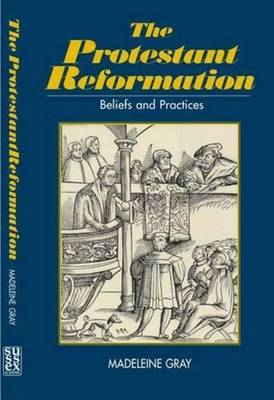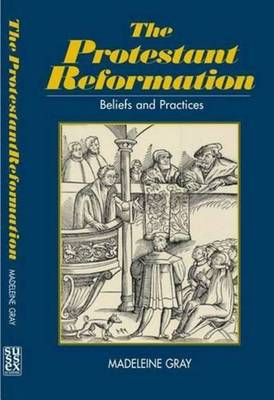
- Retrait gratuit dans votre magasin Club
- 7.000.000 titres dans notre catalogue
- Payer en toute sécurité
- Toujours un magasin près de chez vous
- Retrait gratuit dans votre magasin Club
- 7.000.0000 titres dans notre catalogue
- Payer en toute sécurité
- Toujours un magasin près de chez vous
Description
The Protestant Reformation has been the subject of much recent debate among theologians and church historians. Controversy still rages over the state of the late medieval church, the extent to which the Reformation was driven by theological or political concerns, and the impact which it had on the lives and beliefs of ordinary people. This Student Introduction provides an overview of some of the main themes of religious thinking in this period while giving weight to the multifaceted nature of belief. Particular attention is paid to developments in the practice of worship, and to the impact of the Reformation on ideas of the relationship between the church and secular society. Recent research on the social anthropology of the Reformation is discussed in the context of the extent to which the beliefs and practices of ordinary people were affected by the changing perspectives of theologians and rulers. The present text is written with the modern undergraduate in mind, and is the direct result of teaching experience. This is a market which is not always addressed by existing books, many of which assume a background in Christian thought which few undergraduates now possess. While not for the complete novice, this book assumes very little previous knowledge. Important concepts are explained in simple terms at the outset and glossaries and biographical guides are provided for further reference. Topics include: sin and salvation; sacrament and ritual; authority and interpretation; the theory and organization of the True Church in the Protestant tradition; the Protestant churches and secular authority; literacy, education and the popular response to the Reformation; liturgy and the articulation of belief; popular belief and folk culture.
Spécifications
Parties prenantes
- Auteur(s) :
- Editeur:
Contenu
- Nombre de pages :
- 262
- Langue:
- Anglais
- Collection :
Caractéristiques
- EAN:
- 9781903900116
- Date de parution :
- 01-06-03
- Format:
- Livre broché
- Format numérique:
- Trade paperback (VS)
- Dimensions :
- 137 mm x 213 mm
- Poids :
- 358 g

Les avis
Nous publions uniquement les avis qui respectent les conditions requises. Consultez nos conditions pour les avis.






